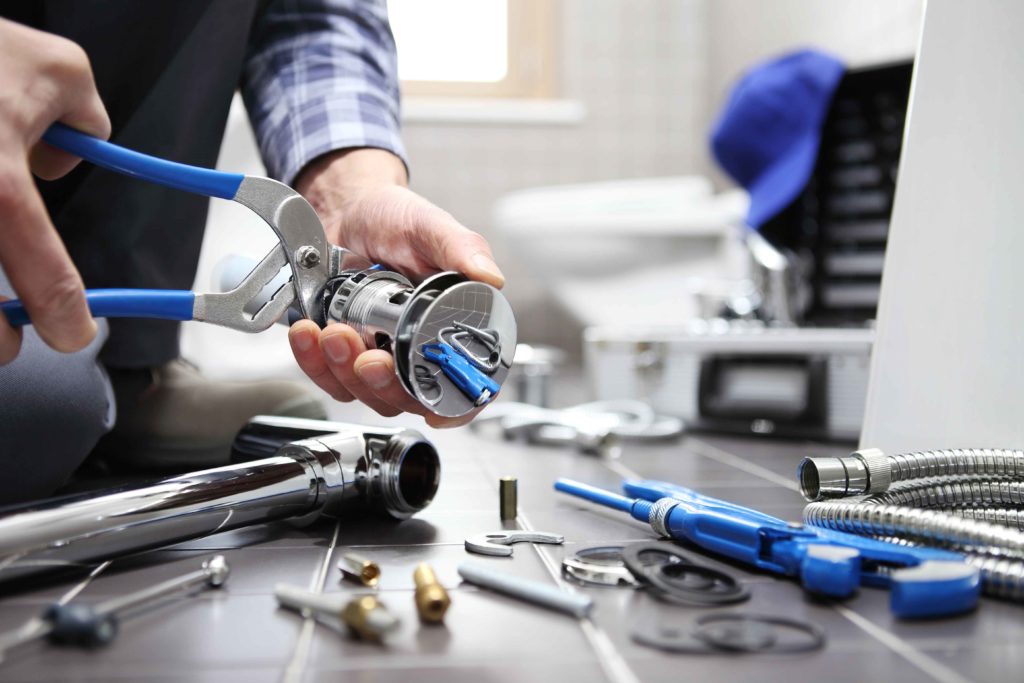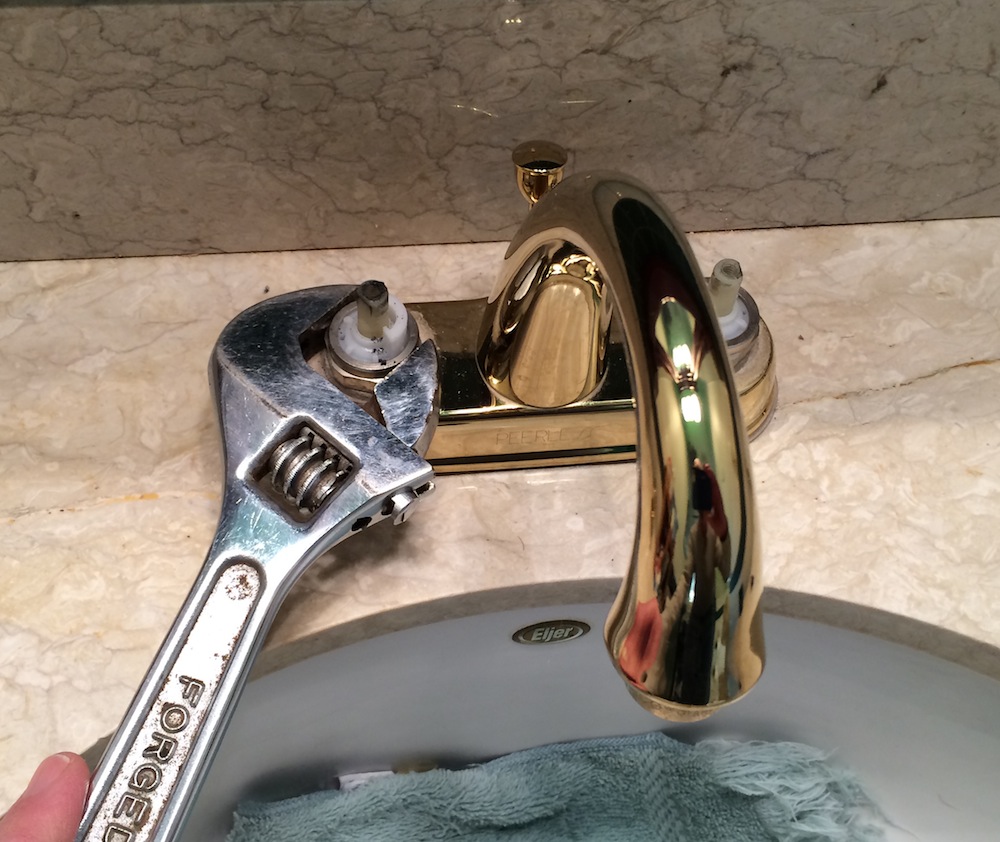Your Motives Behind Resolving a Broken Faucet
Your Motives Behind Resolving a Broken Faucet
Blog Article
How do you really feel when it comes to 4 Common Reasons for a Leaky Faucet?

Leaking faucets might feel like a small hassle, yet their effect exceeds simply the annoyance of the noise. From wasting water to incurring unneeded economic prices and health and wellness threats, disregarding a leaking faucet can result in different consequences. In this write-up, we'll explore why it's vital to address this typical family concern without delay and successfully.
Waste of Water
Ecological Impact
Leaking taps add considerably to water waste. According to the Epa (EPA), a solitary tap trickling at one drip per second can throw away greater than 3,000 gallons of water per year. This not only stress water resources yet also affects ecological communities and wildlife dependent on them.
Financial Costs
Increased Water Expenses
Past the environmental influence, leaking faucets can blow up water bills significantly. The gathered wastage in time equates into higher energy expenses, which might have been avoided with prompt repairs.
Potential Residential Property Damage
Furthermore, long term dripping can lead to harm to fixtures and surface areas surrounding the tap. Water build-up can cause staining, rust, and even architectural issues if left neglected, resulting in added fixing expenses.
Wellness Concerns
Mold And Mildew and Mold Development
The consistent presence of moisture from a leaking tap produces an excellent setting for mold and mildew and mildew development. These fungi not only endanger interior air top quality yet additionally position health and wellness dangers, specifically for people with breathing conditions or allergies.
Waterborne Illness
Stationary water in leaking taps can end up being a breeding place for microorganisms and other pathogens, boosting the danger of waterborne illness. Pollutants such as Legionella microorganisms prosper in stationary water, potentially leading to serious diseases when consumed or inhaled.
Do it yourself vs. Professional Repair
Advantages and disadvantages of Do It Yourself Fixing
While some may try to fix a trickling tap themselves, DIY repair services feature their own collection of challenges. Without correct expertise and devices, DIY attempts can aggravate the concern or lead to insufficient repairs, extending the issue.
Advantages of Working With an Expert Plumber
Employing a specialist plumber makes sure that the underlying source of the trickling faucet is dealt with successfully. Plumbers possess the know-how and equipment to identify and fix tap issues successfully, conserving time and minimizing the risk of additional damage.
Step-by-Step Overview to Fixing a Dripping Tap
Devices Called for
Prior to attempting to repair a leaking faucet, gather the needed tools, including a flexible wrench, screwdrivers, replacement parts (such as washing machines or cartridges), and plumber's tape.
Usual Tap Issues and Their Solutions
Recognize the sort of faucet and the certain concern creating the drip. Common troubles consist of worn-out washers, rusty valve seats, or defective O-rings. Refer to maker directions or on the internet tutorials for step-by-step support on repairs.
Preventive Measures
Normal Maintenance Tips
To prevent leaking taps, execute routine maintenance such as cleaning up aerators, checking for leaks, and changing damaged components quickly. In addition, take into consideration mounting water-saving tools or upgrading to more efficient fixtures.
Relevance of Prompt Repairs
Resolving dripping faucets as quickly as they're noticed avoids additional water wastage and potential damages, inevitably conserving both water and money in the long run.
Effect On Property Worth
Understanding of Well-Maintained Property
Keeping a home in good condition, including attending to maintenance issues like trickling taps, boosts its viewed value and desirability amongst possible purchasers or occupants.
Impact on Resale Worth
Characteristics with well-kept plumbing fixtures, consisting of faucets, command greater resale worths in the realty market. Dealing with dripping taps can add to a favorable impression during property examinations and arrangements.
Ecological Responsibility
Specific Contribution to Conservation
Taking responsibility for fixing dripping taps lines up with broader efforts toward water conservation and environmental sustainability. Every individual's actions collectively make a significant effect on protecting valuable resources.
Lasting Living Practices
By prioritizing timely repairs and adopting water-saving practices, individuals contribute to lasting living practices that benefit both present and future generations.
Final thought
Attending to a trickling faucet goes beyond plain ease; it's a crucial step towards saving water, reducing financial costs, and securing health and wellness and residential or commercial property. Whether through DIY repair services or expert help, taking action to deal with leaking faucets is a small yet impactful way to advertise liable stewardship of sources and contribute to a healthier, extra sustainable future.
How to Fix a Leaky Faucet: Step-by-Step Repair Guide
A leaky faucet may seem like a simple annoyance, but if it's not fixed promptly, that leak could cost hundreds to potentially thousands. From water damage to mold, mildew, and high water bills, even a tiny leak can be catastrophic if left unattended. Damage like this can even affect the overall value of your home, so it's important to take the right approach for leaky faucet repair. You may need the help of a plumber in some cases, but we've got a few tips you can try on how to fix a leaky faucet before calling the pros.
Four Faucet Types
When you're learning how to fix a leaky faucet, the first step is knowing what kind of faucet you're working with! There are four common types.
Cartridge Faucets
Cartridge faucets come in one- or two-handled varieties. In one-handled cartridge faucets, hot and cold water combines in a single cartridge. In the two-handled versions, hot and cold water are controlled separately and mixed in the faucet.
Ball Faucets
Ball faucets have a single lever you push up and down to adjust the pressure and rotate to change the temperature. A slotted metal ball controls the amount of water allowed into the spout.
Compression Washer Faucets
They're the oldest type of faucet, but they're still used in many homes — especially older ones. Compression faucets have two separate handles that, when turned, raise or lower the washer that seals a water valve. This valve stops water from flowing through the faucet when it is turned off.
Disc Faucets
Disc faucets rarely need to be repaired due to their maintenance-free design. The water flow is controlled by two discs — the upper one raises and lowers against a fixed lower disc, creating a watertight seal. If your disc faucet starts leaking, you may need to replace the seals or clean residue buildup from the inlets.
Fixing a Leaky Faucet
Step 1: Turn Off the Water
Whether you're learning how to fix a leaky bathtub faucet or how to fix a leaky kitchen faucet, always turn off the water supply to your working area when you're fixing a leak. The last thing you want is a flood added to your list of things to fix.
Look for the shutoff valves below your sink or around the tub and turn them clockwise to stop the water flow. If your faucet doesn't have shutoff valves, you may need to turn off the water for the whole house. Check to make sure it's off by turning the faucet on. If nothing comes out, you're ready to start the repair.
Step 2: Take Apart the Faucet
How you disassemble your faucet depends on the type of fixture you have. You can use a flathead screwdriver to remove the caps on top of the handle or handles for cartridge and compression faucets. Inside, you should see handle screws. Unscrew these with a screwdriver to remove the handle.
Disc- and ball-style faucets will typically have an inlet screw near the handle, and removing that will reveal the interior of the faucet.
Detach the Valve Stem
For cartridge- and compression-style faucets, you'll see the inner valve stem or cartridge once you remove the faucet handles. If you have a compression faucet, unscrew the brass valve stem. If you have a cartridge faucet, pull out the cartridge. If your cartridge has been in place for a while, it may require some tools or extra force to remove it due to mineral deposits.
Examine and Replace Parts
Once you've removed the parts, check them out to confirm what needs to be replaced. You may see corroded rubber washers, O-rings, stems, or cartridges. On a ball-style faucet, check the seats and springs for damage.
If you need to repair a leaky disc faucet, check the inlet and seals on the lower disc.
Once you determine what parts must be replaced, visit your local hardware store. Bring the damaged parts with you to ensure you can purchase the correct components to replace them.
Clean Valves and Faucet Cavity
If you've removed a stem or cartridge, you may notice mineral buildup in the faucet's threads. Use white vinegar to clean the valve seat by soaking it for a few minutes, then scrub it away with a soft toothbrush and rinse with warm water. You can also clean the interior of the faucet in the same way.
Reassemble the Faucet
Once your faucet is cleaned and the required parts have been replaced, it's time to reassemble it. Put the pieces back together and slowly turn the water supply back on. Doing this slowly is crucial because too much initial water pressure can damage the new hardware you've just installed.
https://homewarranty.firstam.com/blog/how-to-fix-leaky-faucet

Hopefully you liked our post on . Thanks for taking the time to read through our piece. Enjoyed reading our piece? Please quickly share it. Let other people locate it. We treasure reading our article about What Causes Leaky Faucets & How To Fix Them.
Report this page